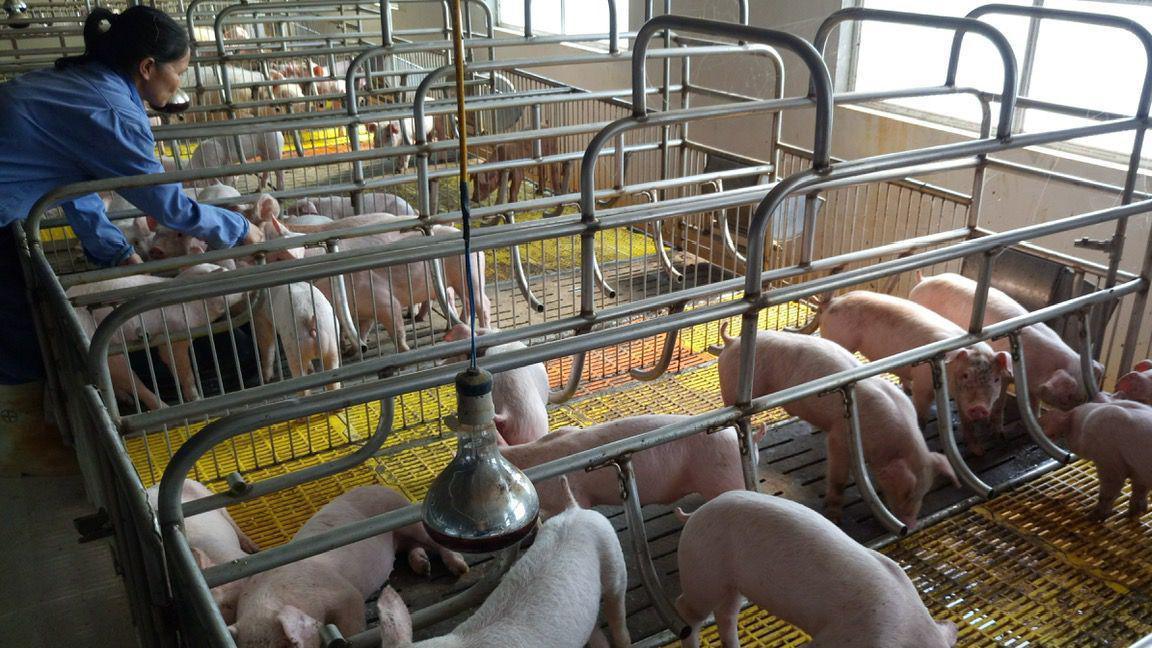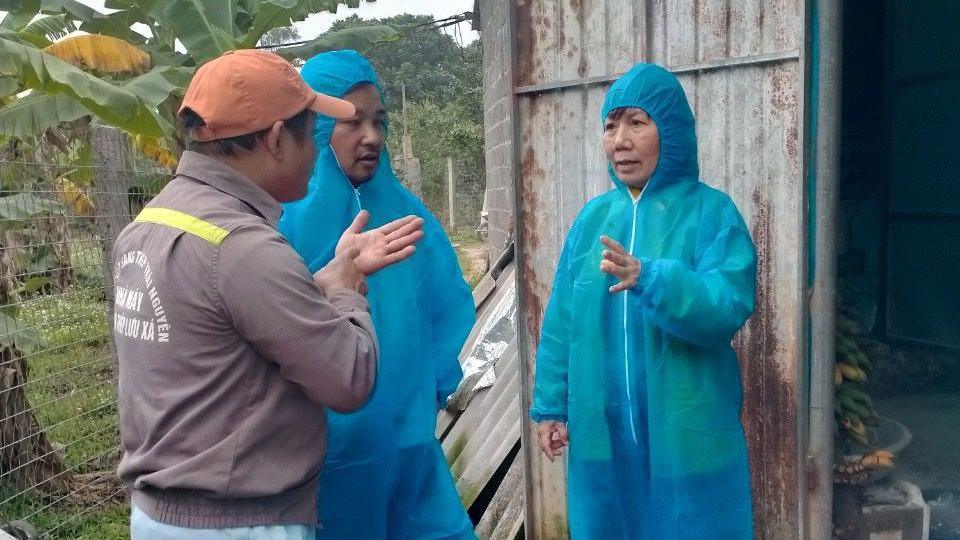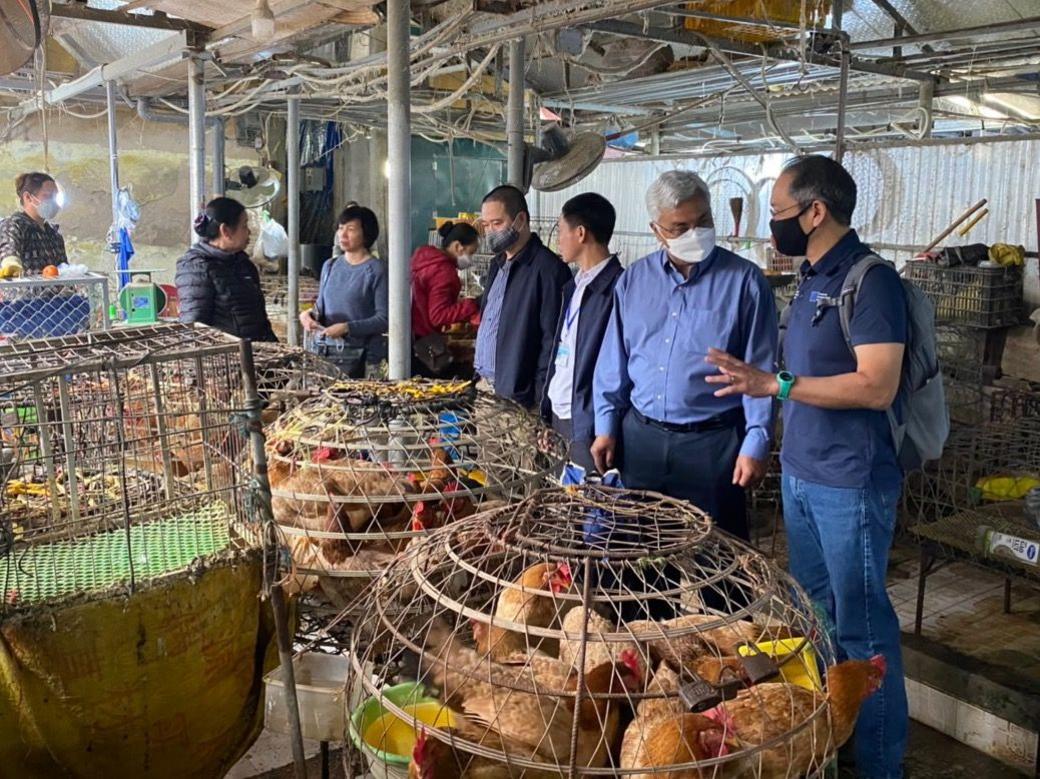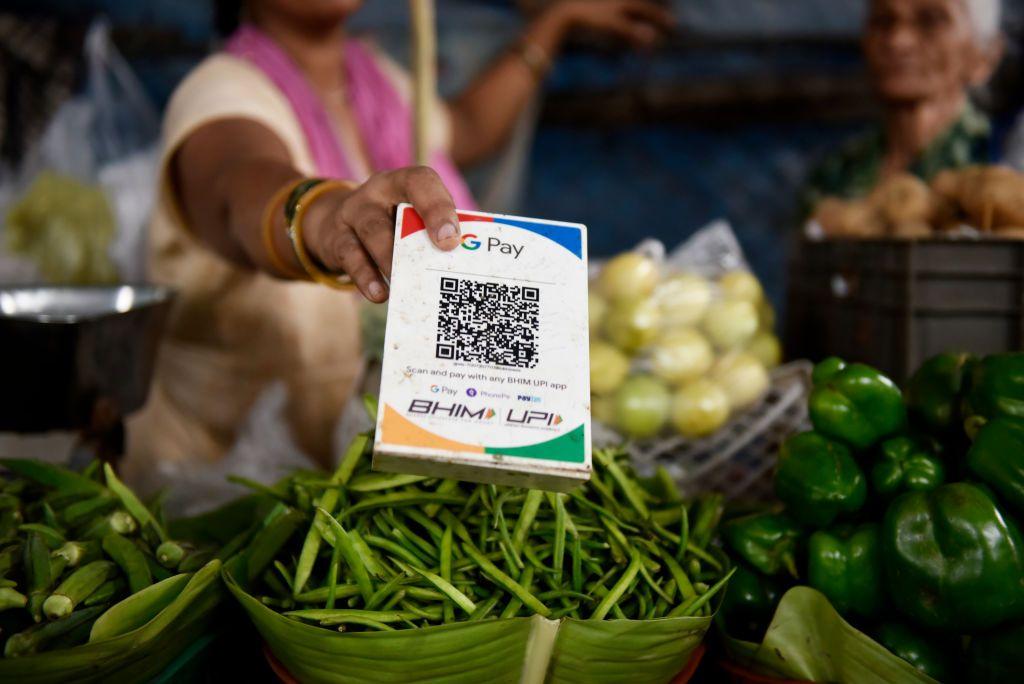When vets are scarce what can farmers do?

There are about 600 pigs on Quang Doan Hong's farm
- Published
Quang Doan Hong is a busy person. The accountant, who lives with his family in Hưng Yên, Vietnam, also owns a farm with about 600 pigs.
He’s had to learn quickly about pig health, from which vaccines are effective to when to use antibiotics.
“When the weather changes, I give the pigs antibiotics,” Mr Hong says. In his experience, rapid changes between sunny and rainy weather make it necessary to administer antibiotics for respiratory and diarrhoeal diseases.
Mr Hong has also had to learn which sources of information are reliable. He’s joined farming groups and done online research, although he’s realised that some information on Facebook, for instance, isn’t reliable. “I need to filter it,” he explains.
As his operation has grown, Mr Hong has become reluctant to have veterinarians visit.
He worries about the risk of disease transmission from people who come into contact with animals at many different sites. Some large farms require animal health workers to quarantine for several days before visiting.

The Food and Agriculture Organization encourages careful use of antibiotics
One thing that would be useful to Mr Hong is a hybrid source of information: something that combines the expertise of veterinarians with the convenience of digital access.
These kinds of remote veterinary technologies are under development.
The team behind Farm2Vet, a veterinary app for farmers, recently won the top prize from the Trinity Challenge, a charity tackling global health threats.
The competition that Farm2Vet won focused on antimicrobial resistance (AMR) – the urgent global threat of our limited slate of antibiotic medicines becoming less effective as pathogens adapt.
Farms where antibiotics are overused can become breeding grounds for antibiotic-resistant bacteria. These bacteria then enter the food system and the environment, for instance due to animal waste. Some drug-resistant bacteria, like certain strains of E. coli, can spread between animals and humans.
“Antibiotic misuse and overuse largely relates to a lack of understanding, a lack of support,” says Marc Mendelson, the director of the Trinity Challenge, who also heads the infectious diseases division at the University of Cape Town’s hospital.
Veterinary antibiotics can be extremely cheap, Prof Mendelson says. “Some farmers probably don’t even know that they’re giving antibiotics, because it’s just in the feed.”
Vietnamese regulations now require prescriptions for livestock antibiotics. But this requirement is relatively recent and difficult to monitor. In practice, antibiotics are dispensed without prescriptions, Pawin Padungtod acknowledges.
Dr Padungtod, based in Hanoi, is the senior technical coordinator for the Emergency Centre for Transboundary Animal Diseases (ECTAD), a unit of the Food and Agriculture Organization (FAO).

Helen Nguyen says only the bigger farms in Vietnam can afford vets
Helen Nguyen grew up in Vietnam and now lives in US, where she is an environmental engineer at the University of Illinois Urbana-Champaign. Both countries have issues with the way antibiotics are given to farm animals, she says.
In the US, medically important antibiotics are used for livestock far more often than they’re used for human beings. And in Vietnam, Prof Nguyen says, only larger farmers can afford or access veterinarians.
Prof Nguyen and the rest of the Farm2Vet team are seeking to address these issues in Vietnam by working with farmers, veterinarians, and agricultural suppliers to develop a smartphone app that provides reliable information on animal care.
There would be an AI-powered chatbot to answer relatively simple questions, and connections to veterinarians in more complex cases.
“The technology that we are trying to produce doesn’t replace vets,” according to Prof Nguyen. The aim is to allow veterinarians to expand their reach.
She says that the challenge is not developing the technology, but accumulating the knowledge base.
While there are Vietnamese-language veterinary publications, the amount of data required to feed the AI is likely to exceed what’s available in Vietnamese. Because so much of the published veterinary science is in English, it’s important to carefully translate and localise the information, even to the provincial level.
It will be years before the app is ready. Prof Nguyen says that while the app will be free for farmers to use, eventually, for financial sustainability, the aim is to allow advertising and a paid farming certification programme.

Biosecurity experts want better ways to track the outbreak of animal diseases
Also in Vietnam, the International Livestock Research Institute is designing a similarly named app, FarmVetCare. The idea is that using the app, farmers will report health abnormalities in livestock to a veterinarian. This is intended to help prevent and control animal diseases and diseases which can transfer between animals and humans.
A different app is being piloted to extend the reach of the digital system for logging animal disease outbreaks through Vietnam’s Department of Animal Health. While the system now allows daily online reporting at the provincial level, the aim is to localise the reporting further, to be as close to the farm as possible.
“The mobile application will then be very helpful because now they can start the reporting closer to the site of where the outbreak is,” Dr Padungtod says.
Farmers may be reluctant to report veterinary diseases “because they don’t want to go bankrupt”, Prof Nguyen says. The Farm2Vet app would allow farmers to report veterinary illnesses anonymously, and the team would not provide identifiable data to anyone, according to Prof Nguyen.
Prof Mendelson reckons such tools that can simplify the process of reporting, especially for subsistence farmers, are helpful.
They may also help to prevent infection in the first place, which would cut down on the need for precious antibiotics. “The biggest bang for buck is in preventing infection – and not only in humans, but in in livestock,” Prof Mendelson says.
He comments that governments could encourage prevention by making vaccination more accessible. And farmers could reduce the chances of infection by giving farm animals more space. Prof Mendelson says, “Intensive livestock farming increases stress on animals. It increases illness and risks.”
While the tech world is full of well-meaning apps that end up being little used, Mr Hong, the pig farmer, has expressed interest. He appreciates the practicality and user-friendliness of apps. “If available, I would like to use them,” he says.
Translations by Lam Nguyen
Related topics
More Technology of Business
- Published6 August 2024

- Published19 July 2024

- Published11 July 2024
